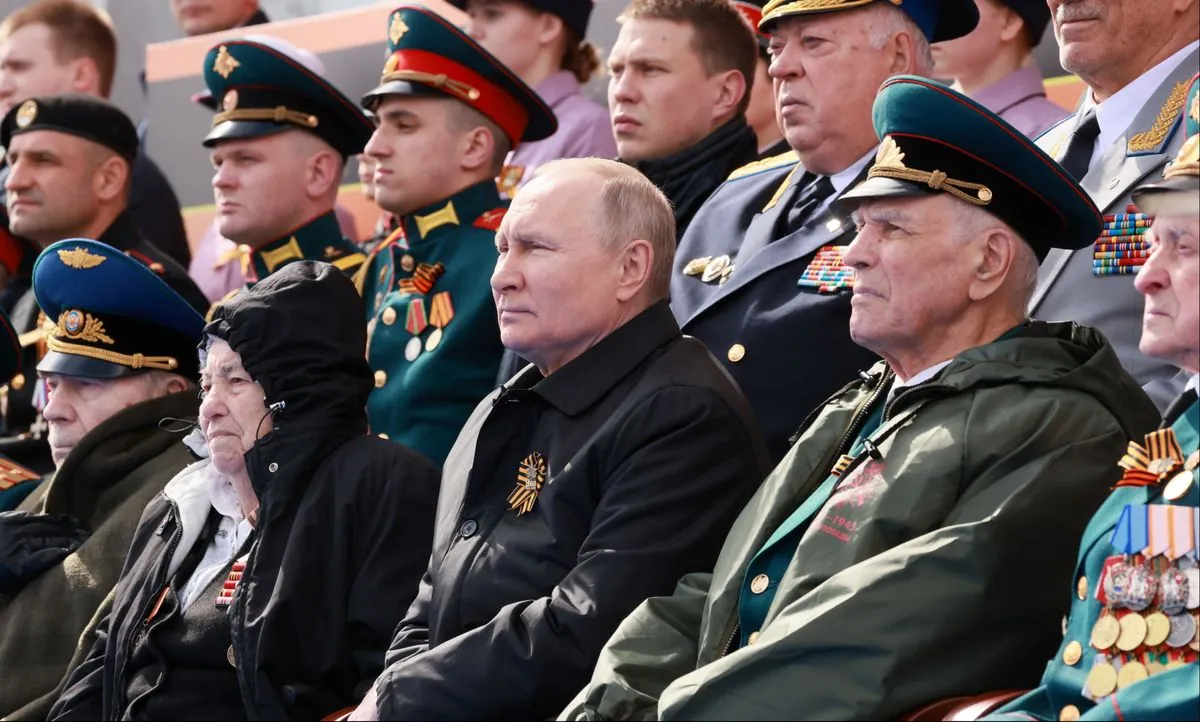Western leaders face a critical challenge in addressing Vladimir Putin's aggressive actions without risking direct conflict with Russia. The debate over how to respond has intensified, with some calling for Cold War-style containment while others advocate for continued engagement.
President Joe Biden's recent message to Putin to "Stop" highlights the complexity of the situation. The Russian leader has shown no signs of backing down, continuing his efforts to challenge the U.S.-led global order and pursue his vision of a resurgent Russia.
Experts warn that the West has consistently underestimated Putin and risks misreading him again. Fiona Hill, a senior fellow at the Brookings Institution, criticizes current U.S. policy as reactive, stating, "We haven't had a holistic approach."
Putin's efforts to build a militarized Russian society geared for long-term confrontation with the West have raised concerns. These include revamping the education system, monopolizing culture, and indoctrinating youth. This approach aligns with the concept of "Russkiy Mir" (Russian World), which has been used to justify Russian influence beyond its borders.
The situation is further complicated by Russia's possession of the world's largest nuclear arsenal, with an estimated 5,977 nuclear warheads as of 2022. This fact underscores the high stakes involved in any potential conflict.
Former Polish President Aleksander Kwasniewski warns of the increased risk of war, stating, "We are in a world which is much more risky, much more unpredictable, much more complicated."
Putin's domestic control remains strong, despite setbacks such as Ukraine's recent incursion into Russia's Kursk region. The death of opposition leader Alexei Navalny in prison in February 2024 further solidified Putin's grip on power.
The debate over containment versus engagement strategies continues. Some argue for respecting Russia's view of Ukraine as part of its core security interests, while others advocate for a tougher stance. The situation echoes the Cold War era, which lasted from 1947 to 1991 and saw the implementation of the containment policy outlined in George Kennan's "Long Telegram" of 1946.
Kurt Volker, former U.S. ambassador to NATO, contends that Putin and other autocrats perceive America as weak and divided. He argues for providing Ukraine with more substantial support to defeat Russian forces.
Critics point to the slow rollout of advanced weapons to Ukraine and the continued Western imports of Russian energy as weaknesses in the current approach. Russia's economy remains heavily dependent on oil and gas exports, accounting for about 60% of its export earnings.
The situation is further complicated by Russia's use of "hybrid warfare" tactics, combining conventional military actions with cyber attacks and disinformation campaigns. This approach has been observed in various conflicts around the world, including the involvement of the Wagner Group, a Russian private military company.
"The West is going to lose, not because it is fundamentally weak, but because there are no real leaders in the West. You have to be bold, decisive. You have to tell your populations, 'Look, we're living through the Cold War, which could quickly descend into the Third World War.'"
As the largest military conflict in Europe since World War II continues, many are calling for a new containment approach. This would involve broadening contacts with Moscow on issues such as arms control while increasing Western military production and Europe's capacity to defend itself.
The outcome of the war in Ukraine is seen as crucial in defining the future of European security and the global order. Experts stress the need for a long-term, consistent strategy to address the Russian threat, potentially involving the creation of a permanent secretariat with allies to maintain a coherent Russia policy across administrations.
As the situation evolves, Western leaders must navigate the complex landscape of international relations, balancing the need to counter Russian aggression with the imperative of avoiding a direct military confrontation that could have catastrophic consequences.
